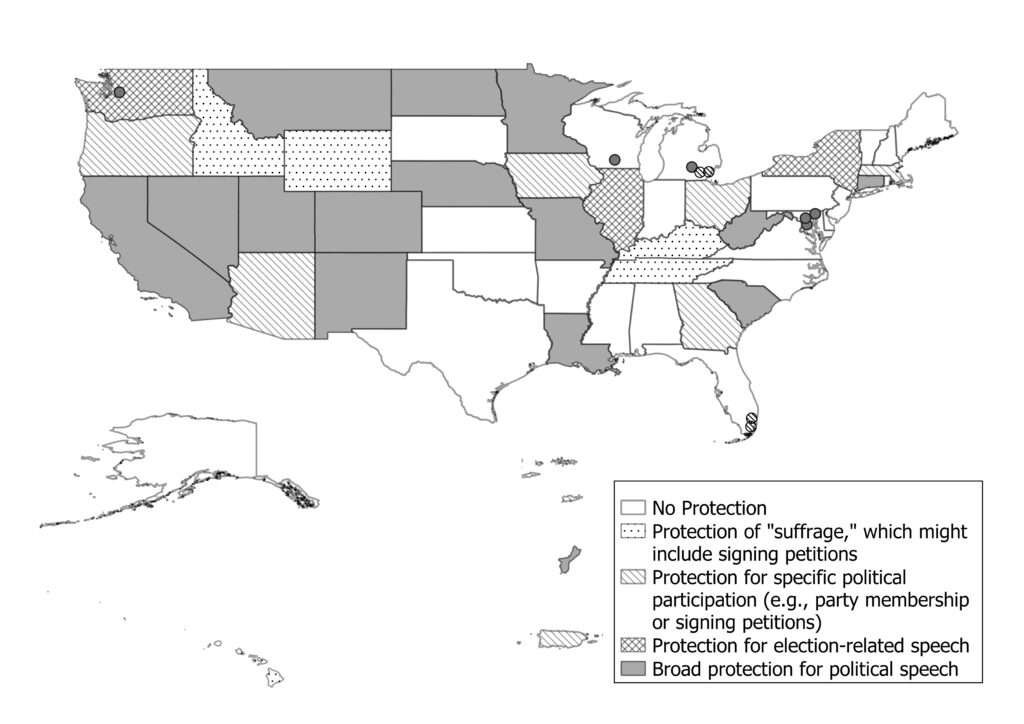The Volokh Conspiracy
Mostly law professors | Sometimes contrarian | Often libertarian | Always independent
My Article in the Journal of Free Speech Law, "Should the Law Limit Private-Employer-Imposed Speech Restrictions?"

It's now out, in the symposium on Non-Governmental Restrictions on Free Speech. The Introduction and the Conclusion:
About half of Americans live in jurisdictions that protect some private employee speech or political activity from employer retaliation. Of course, that means about half don't. Which jurisdictions are correct? And, if private employers should generally be barred from firing, disciplining, or perhaps even declining to hire workers based on their speech, which sorts of speech should be protected? …
As I hope I've made clear, laws limiting private-employer-imposed speech restrictions might be a cure that's worse than the disease. They might unduly interfere with employers' associational rights (though not generally in an unconstitutional way). They might unfairly require employers to keep paying employees who are more trouble than they are worth. They might make it harder for employers to dismiss employees even for eminently legitimate reasons unrelated to the employee speech. And of course, they might increase the amount of offensive and harmful speech by making such speech less costly for the speakers (though the same can be said of free speech rights generally).
At the same time, private employer speech restrictions genuinely do threaten to undermine democratic self-government, the marketplace of ideas, self-expression, and the development of autonomous citizens, much like many governmental speech restrictions do.
To take just one example, consider abortion, which the Supreme Court has now returned to the political process. It's much harder to have meaningful democratic debate about this subject if people know that they can be fired for signing an initiative or referendum petition, or for contributing their money to a ballot-measure campaign, or for publicly endorsing a candidate—or, for that matter, just for expressing their views on the moral or practical impact of one or another position. And to the extent that religious association or expression on this subject is protected by Title VII and state religious discrimination bans, nonreligious expression ought to be as well.
This threat to public discussion and to self-expression also seems likely to be increasing, as people find it easier than ever before to demand, in an organized way, the firing of other people whose speech they condemn. And the existence of such laws may take some of this public pressure off employers, by giving employers an answer to such demands: "We don't like the employee's speech, either, but we can't fire him, because the law has tied our hands." I'm not sure what the right answer is to these questions; but I hope what I've said above can help us think through them.


Show Comments (2)